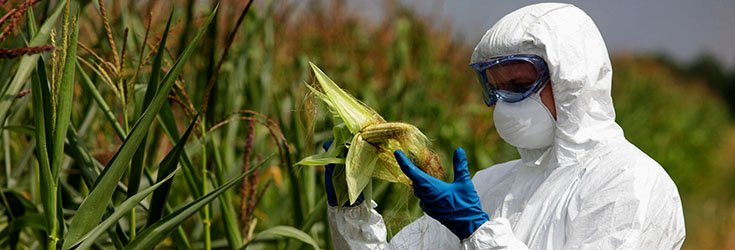House Votes to Reject GMO Labeling TODAY Under ‘DARK Act’

Update: The DARK Act, making mandatory GMO labeling ‘illegal,’ has passed the House. It must now be voted on by the Senate, which is the last hope for defeating the bill.
Statewide GMO labeling has been ruled ‘illegal’ as the House of Representatives decides to pass the notorious ‘DARK Act,’ which puts a halt to all mandatory GMO labeling initiatives around the United States.
I’ve been warning you about this secretive bill (officially titled the ‘Safe and Accurate Food Labeling Act’) since its inception, which I believe could go down in history as one of the largest attacks on the food supply in recent history.
Quite frankly, the DARK Act is a last ditch effort by these groups to silence the opposition through use of legislative force.
The Senate Agricultural Committee, which is heavily influenced by companies like Monsanto, has scheduled a hearing on October 21st, just three weeks away, to try to take state’s rights to label GMO away from them. This means that big wins in Vermont and Maui County would become null and void. It also means you would never know if you were eating a GM product or not when you pick up food in grocery store aisles.
It would also allow GMOs to be labeled ‘natural’ so lawsuits which hold large companies liable for lying to consumers about what is in their food (ie., Kellogg’s recent Kashi fiasco) would become a thing of the past. Big Food is basically saying this: ‘we’ll tell you what’s safe, and we’ll call something natural even if it’s made in a lab, and you’ll shut up and eat it.’
We’re talking about a bill that was drafted up by the Grocery Manufacturers Association (GMA), and pushed on us by all the usual suspects. All the ones who are afraid of you actually knowing what’s in your food. Because even if you don’t care about the genetic alteration of your food, you most certainly should be concerned as to whether or not it has been doused in Monsanto’s cancer-linked herbicides.
The GMO-loaded processed food industry is scared, and they know they’re losing the battle for the food supply. This new bill is yet another example of the tricks they will use to take away our ability to know what we’re putting in our mouths. I for one will take a stand against this resurrected ‘Monsanto Protection Act’ that could become law unless the Senate defeats it.
As Reuters reports:
“The U.S. House of Representatives on Thursday passed a hotly debated measure that blocks any mandatory labeling of foods made with genetically engineered crops, including pre-empting a state law set to take effect next year in Vermont… Opponents countered that 64 other countries require labeling of GMO foods, the science on safety is mixed, and consumers have a right to know if their food is made with GMOs.”
Stop the ‘DARK Act’ that Would Make GMO Labeling Illegal!
Statewide GMO labeling may soon become illegal in the United States if the Senate passes the ‘DARK Act,’ which is formally known as the ‘Safe and Accurate Food Labeling Act.’ We need your help to make it so this bill doesn’t become law.
We need your help in protecting our food rights. Obama promised in 2007 to label GMOs, and now GMO labeling may be buried deeper than ever.
If this is not something you want to see happen, then I suggest you contact your senator and tell them exactly what you think of H.R. 1599.
We believe that we DO have a right to know what’s in our food.
Will you stand against the DARK Act with us?
